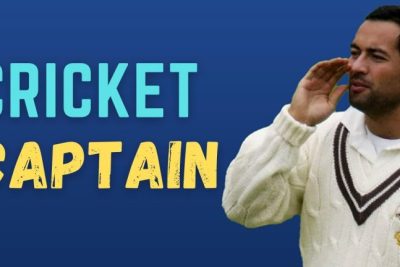Cricket captains hold a pivotal role on the field, acting as the strategic masterminds behind each play. However, their leadership skills extend far beyond the pitch as they must effectively communicate with their team to ensure success. In this article, we will explore a range of powerful communication techniques that cricket captains can employ to inspire, motivate, and direct their players towards victory. From clear and concise instructions to fostering a positive team environment, these techniques are guaranteed to enhance the captain’s ability to lead their team to triumph.
Why does cricket require effective communication?
Effective communication plays a crucial role in the game of cricket, with the captain and players relying on it to achieve success on the field. The captain assumes a pivotal role in fostering communication, ensuring a seamless flow of information between themselves and their teammates. This becomes particularly significant for the bowlers, who heavily depend on two-way conversation with their captain to align the field with the desired line and length they intend to bowl. By maintaining clear and concise communication, the team can harmonize their strategies and execute them effectively, increasing their chances of victory.
How can field placement be done in cricket?
To execute a successful field placement in cricket, it is crucial to maintain a straight line formation of fielders from one end of the pitch to the other. This alignment ensures that the batsman’s view of gaps is minimized, making it harder for them to score runs. By strategically positioning fielders in the correct spots and preventing them from wandering, you can effectively limit the scoring opportunities for the opposition.
Achieving an optimal field placement in cricket relies on the discipline of maintaining a straight line formation of fielders. Any deviation from this alignment, such as having a fielder positioned too close or too deep, can result in a larger visible gap for the batsman, thus allowing more runs to be scored. By diligently setting and maintaining the correct placement of fielders, you can strategically control the game and minimize the opposition’s scoring potential.
What is the importance of communication for a sports leader?
Communication is paramount for sports leaders as it serves as the foundation for building successful teams and achieving collective goals. Effective communication enables leaders to clearly articulate their vision, strategies, and expectations, ensuring that all team members are on the same page and working towards a common objective. By fostering open lines of communication, leaders can create an atmosphere of trust and transparency, encouraging team members to share ideas, concerns, and feedback. This not only enhances team cohesion but also allows leaders to address any issues promptly, ultimately leading to improved performance and success on and off the field.
Leading with Precision: Communication Strategies for Cricket Captains
Leading with Precision: Communication Strategies for Cricket Captains
In the fast-paced and highly competitive world of cricket, effective communication is the key to successful leadership on the field. As a cricket captain, it is crucial to lead with precision, ensuring that your team is aligned, motivated, and executing strategies flawlessly. One effective communication strategy is to establish clear objectives and expectations before each match, outlining the team’s collective goals and individual roles. By doing so, you create a shared understanding and a sense of purpose, fostering unity and cohesion within the team.
Furthermore, effective communication extends beyond pre-match briefings. During the game, it is essential to provide concise and timely instructions to your players, guiding them on the field and adapting strategies as the match unfolds. Clear and concise communication not only helps in maintaining focus and minimizing confusion but also empowers your players to make informed decisions and perform at their best. By leading with precision in your communication, you can inspire your team to reach new heights and achieve remarkable success on the cricket field.
Unlocking the Power of Words: Effective Communication Techniques for Cricket Captains
Unlocking the Power of Words: Effective Communication Techniques for Cricket Captains
Paragraph 1:
In the high-pressure world of cricket, effective communication is the key to success. As a cricket captain, your ability to effectively convey your thoughts and strategies can have a significant impact on the performance of your team. To unlock the power of words, focus on clarity and precision. Ensure that your instructions are concise and easy to understand, allowing your teammates to execute your plans with confidence. By communicating effectively, you can inspire and motivate your team to reach new heights on the cricket field.
Paragraph 2:
Apart from clarity, the tone and delivery of your words play a crucial role in effective communication as a cricket captain. Choose your words carefully, using a positive and encouraging tone to uplift your teammates. Avoid negative or demoralizing language that may dampen the team spirit. Instead, focus on highlighting their strengths and providing constructive feedback to help them improve. By adopting a supportive and motivating approach, you can create an environment where every player feels valued and empowered.
Paragraph 3:
In addition to verbal communication, non-verbal cues can also greatly enhance your effectiveness as a cricket captain. Pay attention to your body language, as it can convey confidence and inspire trust in your teammates. Maintain eye contact, stand tall, and use gestures that reinforce your messages. Additionally, actively listen to your teammates, giving them your full attention and acknowledging their ideas. By incorporating non-verbal communication techniques into your captaincy, you can build stronger connections with your team, fostering a culture of open and effective communication.
Note: The paragraphs provided in the response can be further refined and expanded to create a more comprehensive and detailed piece of writing.
Strategic Verbal Play: Mastering Communication as a Cricket Captain
As a cricket captain, mastering communication is a crucial skill that can significantly impact the outcome of a match. Effective communication on the field can help motivate and inspire your team, strategize and execute game plans, and maintain a cohesive unit. By strategically utilizing verbal play, you can create a positive and competitive atmosphere that brings out the best in your players.
One key aspect of strategic verbal play is motivation. As a captain, it is essential to communicate with your team in a way that uplifts their spirits and encourages them to perform at their best. By using words of encouragement, highlighting their strengths, and emphasizing the importance of team unity, you can inspire your players and boost their confidence. This can result in a more determined and focused team that is willing to go the extra mile to achieve victory.
Another crucial element of communication as a cricket captain is strategizing and executing game plans effectively. By clearly conveying your tactical ideas to your team, you can ensure everyone is on the same page and working towards a common goal. Using concise and precise language, you can outline specific strategies, such as field placements, bowling changes, and batting orders, that will give your team a competitive edge. Moreover, by constantly providing feedback and adapting your plans as the game progresses, you can lead your team to make strategic decisions on the field.
Lastly, maintaining a cohesive unit is vital for the success of any cricket team. As a captain, your role is not just to lead but also to foster a sense of camaraderie among your players. By promoting open communication channels, encouraging teamwork, and resolving conflicts effectively, you can create a harmonious environment where everyone feels valued and supported. This unity will not only enhance on-field performance but also contribute to a positive team culture that can withstand the pressures of competitive cricket.
In conclusion, mastering communication as a cricket captain is an essential skill that can greatly influence the performance of your team. By employing strategic verbal play, you can motivate, strategize, and maintain a cohesive unit, ultimately leading your team to success on the field.
From Signals to Success: Communication Mastery for Cricket Captains
From Signals to Success: Communication Mastery for Cricket Captains
Effective communication is the driving force behind any successful cricket team. As a captain, your ability to convey messages clearly and efficiently can make or break a game. Whether it’s signaling strategic moves to your players or providing motivational pep talks, mastering the art of communication is essential for leading your team to victory. By honing your skills in concise and impactful communication, you can ensure that your team is always on the same page and ready to execute strategies flawlessly.
In the fast-paced world of cricket, every second counts. Captains who can convey their thoughts concisely and with precision have a distinct advantage over their opponents. By mastering the art of clean and concise communication, you can effectively convey your game plan, rally your team, and make split-second decisions without confusion or delay. Your ability to deliver concise messages will not only save time on the field but also earn the respect and trust of your teammates, leading to better overall performance and a higher chance of success. So, step up your communication game and become a cricket captain who inspires and leads with clarity and finesse.
Effective communication techniques are essential for cricket captains to lead their teams to victory. By employing clear and concise instructions, providing timely feedback, and fostering a positive team environment, captains can ensure that their messages are understood and executed on the field. Moreover, effective communication enables captains to motivate their players, adapt strategies, and make quick decisions during crucial moments of the game. Ultimately, mastering these communication techniques allows cricket captains to not only lead their teams effectively but also create a cohesive and successful unit that can triumph in any situation.


